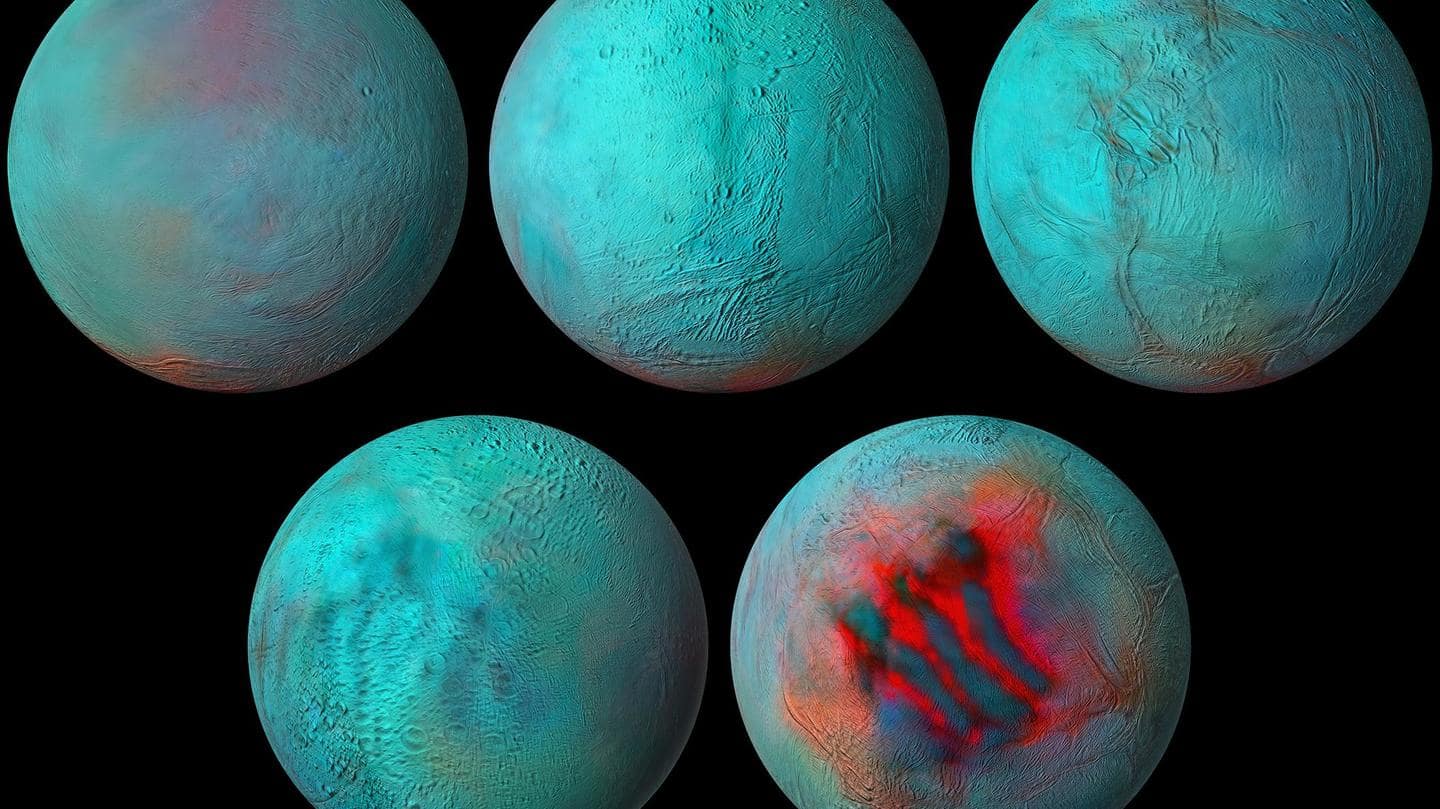
Saturn's moon Enceladus might be habitable, says study
What's the story
An icy moon of Saturn called Enceladus could become the next epicenter of humanity's search for alien life.
Considering how we are yet to find any 'red-blooded' Martians, this is probably an indication to expand our search elsewhere.
A study has found that the ocean underneath Enceladus' icy exterior appears to have all the basic ingredients required for life.
Context
Why does this story matter?
It seems that after lying dormant for a few years, Enceladus is back in contention for the best habitable environment outside Earth.
The computer model which showed the presence of phosphorus on this Saturnian moon should give scientists more fuel to sift through the Cassini data.
Favorable findings will certainly change the way we view the possibility of life outside our planet.
Recap
NASA's Cassini spacecraft had found traces of methane
This is not the first time Enceladus has popped up on the 'search of life' radar.
NASA went as far as flying its Cassini spacecraft through the frosty plumes that shot out of Enceladus' crust before crashing the probe into Saturn.
The spacecraft picked up high amounts of methane. It is the same dive by Cassini that has provided material for the new study.
Result
Computer model suggests presence of phosphorus in ocean
Methane is associated with life on Earth. However, most were disappointed to not find any key ingredient of life in the space geysers erupting from Enceladus.
Now, a study published in the journal Proceedings of the National Academy of Sciences, based on a computer model created by planetary scientist Jihua Hao and his colleagues, suggests otherwise.
The study says Enceladus' ocean has dissolved phosphorus.
Possibility
Ocean in Enceladus may have more phosphorus than Earth's seas
The group of researchers used data on the ocean-seafloor system from Cassini to run models.
Based on the computer models, they predict that Enceladus' ocean has as much or more phosphorus than seawater on Earth.
Phosphorus is a key ingredient of life. Phosphates in different forms are integral in the formation of DNA, RNA, cell membranes, and even teeth.
Official words
'We need to get back to Enceladus'
It was previously thought that Enceladus did not have an adequate amount of phosphorus to support life.
Cristopher Glein, the co-author of the study said, "We don't know if phosphorus is present in Enceladus' ocean water, although our modeling results make us optimistic that it is."
"We need to get back to Enceladus to see if a habitable ocean is actually inhabited," he added.